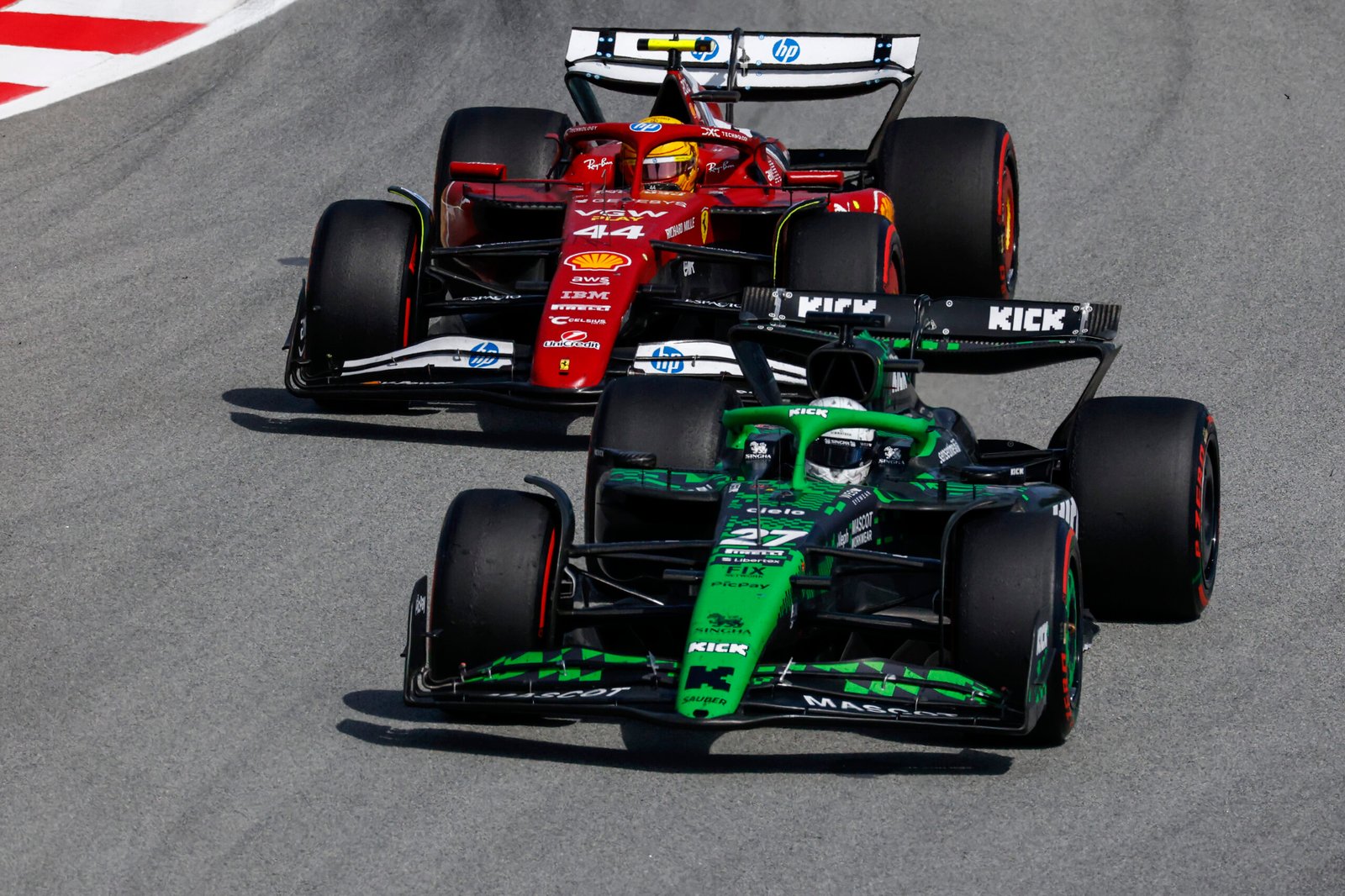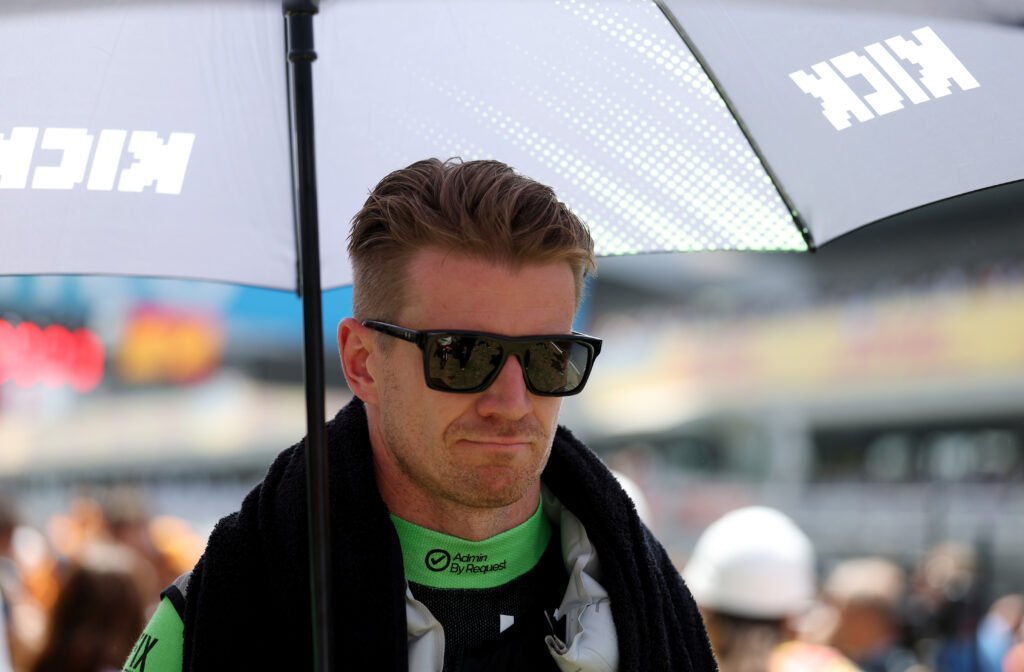After claiming his best F1 finish since 2019, Nico Hülkenberg heads into the Canadian Grand Prix with newfound confidence. The German also remains curious about how his Sauber package will perform on a different circuit.
A much-needed boost for Sauber
Speaking ahead of the weekend in Montreal, Hülkenberg described the Spanish Grand Prix result as a “very welcome, very positive” outcome for the team, especially after a challenging run of races for Sauber.
“It’s been a bit of a difficult and dry patch, all the races between Melbourne and Barcelona. So that was, of course, very successful, very positive for us for morale and everything. We introduced an update in Barcelona, which really had a big impact and made us perform a lot better.”
While some late-race factors worked in his favour, Hülkenberg emphasised that the result was on well-earned merit. Crediting his team with building a solid car for himself.
“The late Safety Car, Kimi dropping out, we got a little bit lucky with some of those circumstances, or they played into our hands. But I also feel we were just on merit. The pace was decent, was points-worthy, and obviously very happy we were able to capitalise in a way like that.”

However, Hülkenberg remains cautiously optimistic on Sauber’s chances at the Circuit Gilles Villeneuve. Emphasising that Barcelona and Montreal were very different stories.
“Barcelona is a very high-speed circuit, and here it’s a different story—much more low-speed, a bumpy circuit, big kerbs—so it could be quite different. We kind of need to verify and wait and see a little bit how it works here.”
Hülkenberg’s opinions on 2010 vs 2025
Ahead of the mass rule changes anticipated for 2026, Hülkenberg, one of the most experienced drivers on the grid, also reflected on how Formula 1 has changed since his rookie season in 2010.
“On the car side, back then, it was a lot more open. You had a lot more options on set-up—even gear ratios, weight distribution. There were more things to play with, to understand, and to get your head around. Maybe there was another level of complexity back in the day.”
While the cars may have been more intricate then, Hülkenberg believes modern day Formula 1 is a more demanding environment in other ways. Particularly with the growing numbers the sport is pulling, drivers are under a greater spotlight.
“F1 has grown a lot. It’s a much bigger stage. There’s more attention, more screening going on. I think on that side, it’s harder when you come in now. It was a bit smaller and a bit more chilled back then, not so international.”
However, the veteran driver offered a neutral perspective when comparing the difficulty of driving modern F1 cars to those over the course of his career.
“These cars are really quick. There’s a lot of downforce. Sometimes it feels very safe. If you look at a lot of the races, we don’t have that many incidents nowadays. Or if there’s an incident, it’s usually a big one because these cars snap, and it usually goes in a big way. Back then, in 2010, it was different in a way. It’s hard to explain.”
A new era of F1 in 2026
Looking ahead to Formula 1’s next big shift in 2026, when smaller cars and new technical regulations will be introduced, Hülkenberg admitted that it’s still early days in understanding what the next generation will bring.
“I haven’t had too many points of contact yet with next year’s generation of cars. It’s all pretty much theory and on paper for me right now. We all know that it will change, and I think it’s going to be quite different.”
This new era of Formula 1 comes with its own set of challenges. However, being a part of the sport for almost 2 decades, Hülkenberg is embracing this steep learning curve ahead.
“It’s going to be, you know, for everyone, relearning things. It’s going to be a very steep learning curve, especially in the first couple of months of the season. Relearning, getting your head around the new regulations, optimising it, and finding the sweet spot.”
Hülkenberg’s thoughts on the F1 Movie
With Brad Pitt’s new Formula 1 movie set to be released later this month, Hülkenberg also shared his thoughts on Formula 1’s increasing global reach. The German driver has seen the sport grow from near bankruptcy to a global phenomenon.
“It was obviously interesting and nice to get a glimpse already, or to see it. I think the public is going to like it. I think they’ve captured more angles of the industry—what teams and drivers do, how much goes into it, especially preparation time and between races. Personally, I liked it. It was pretty cool.”



